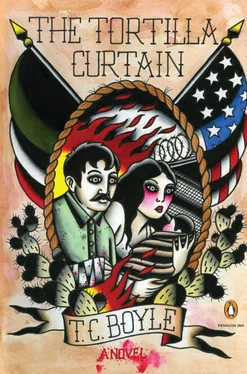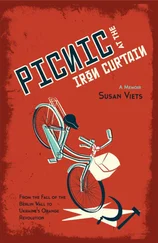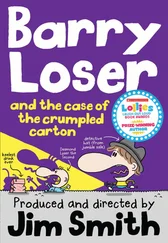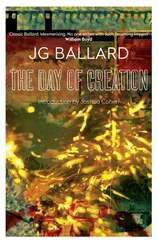T. Boyle - The Tortilla Curtain
Здесь есть возможность читать онлайн «T. Boyle - The Tortilla Curtain» весь текст электронной книги совершенно бесплатно (целиком полную версию без сокращений). В некоторых случаях можно слушать аудио, скачать через торрент в формате fb2 и присутствует краткое содержание. Год выпуска: 2011, Издательство: Penguin Books, Жанр: Современная проза, на английском языке. Описание произведения, (предисловие) а так же отзывы посетителей доступны на портале библиотеки ЛибКат.
- Название:The Tortilla Curtain
- Автор:
- Издательство:Penguin Books
- Жанр:
- Год:2011
- ISBN:нет данных
- Рейтинг книги:4 / 5. Голосов: 1
-
Избранное:Добавить в избранное
- Отзывы:
-
Ваша оценка:
- 80
- 1
- 2
- 3
- 4
- 5
The Tortilla Curtain: краткое содержание, описание и аннотация
Предлагаем к чтению аннотацию, описание, краткое содержание или предисловие (зависит от того, что написал сам автор книги «The Tortilla Curtain»). Если вы не нашли необходимую информацию о книге — напишите в комментариях, мы постараемся отыскать её.
The Tortilla Curtain — читать онлайн бесплатно полную книгу (весь текст) целиком
Ниже представлен текст книги, разбитый по страницам. Система сохранения места последней прочитанной страницы, позволяет с удобством читать онлайн бесплатно книгу «The Tortilla Curtain», без необходимости каждый раз заново искать на чём Вы остановились. Поставьте закладку, и сможете в любой момент перейти на страницу, на которой закончили чтение.
Интервал:
Закладка:
Cándido, buried in the shrubbery next door, flattened himself to the ground. There were shouts in the distance, the sound of engines revving and dying, children's voices, more dogs: they were coming back, all of them, and it was only a matter of time-minutes maybe-till someone returned to this house and saw the roof gone from the greenhouse and came out to investigate. He had to do something and fast, and he was thinking about that, his mind racing, when a further complication occurred to him: he had no way over the wall.
Next door the dog began barking again, a whole frenzied slobbering symphony of barking, and the woman threw the ball a final time and went back into the house. That was a break. Cándido waited till the dog had flipped the ball up in the air a few times, poked its head into the carpetless doghouse and settled down on the lawn to work the ball over as if it were a bone. Then he crawled across the greenhouse yard like a commando, pelvis to the dirt, and wriggled through a gap in an oleander hedge and into the next yard.
This yard was quiet, nobody home, the pool as still as a bathtub, the lawn wet with dew. But he knew this place, didn't he? Wasn't this where he'd worked with Al Lopez on the fence? He remembered that oak tree, sure he did, a real grandfather of a tree, but where was the fence? He got cautiously to his feet and that was when he saw the bare spots in the lawn where they'd set the posts-_gabachos,__ they're never satisfied with anything-and then something a whole lot more interesting: a stepladder. An aluminum one. Right there against the wall. In a heartbeat he was up over the top and scrambling along the outside of the wall, hunched low over his feet, angry suddenly, raging, darting on past the plastic sheeting until he found the dog's dishes and the scrap of carpet and tucked them under his arm-and fuck the dog, he hated that dog, and fuck the fat lady who owned him too; they could buy another dish, another carpet, and who cared if a poor unlucky man and his wife and daughter died of want right under their noses? He wasn't going to worry about it anymore, he wasn't going to ask-he was just going to take.
He secreted the rug and the dishes-cookpots, they were his cookpots now-in the underbrush till he could come back for them later, then made his way back along the wall to where the green plastic sheet had fallen in the dirt. His roof. Plastic to keep the rain out, and the rain was coming, he could smell it, even over the stink of ash and smoldering brush. A crow winged past, mocking him. The sun faded away into the gloom. And Cándido, despite his exhaustion, despite everything, began dragging the big balky sheet of plastic up through the unyielding brush, and as the branches tore at him and his fingers stiffened and the helicopters swooped overhead, he. thought of Christ with his cross and his crown of thorns and wondered who had it worse.
Later, after he'd flung the roof over the frame and hacked down half a mountainside's worth of brush to stack atop it and hide it from view, he slept. It was a deep sleep, the sleep of utter depletion, but it wasn't without dreams. Especially toward the end of it, when night had fallen and he woke and drifted off again half a dozen times. Then his dreams were the dreams of the hunted-they chased him, faceless hordes with bright Irish hair and grasping hands, and he ran and ran till they cornered him in a little wooden box on the side of the mountain. Then he was awake, awake to the soft glow of the lantern and America and the baby sleeping at his side. He smelled fruit-the smell was so strong he thought for a minute he was fifteen again and working a juice presser in the stand at the _mercado.__ With an effort, aching all over from his ordeal, he propped himself up on his elbows and surveyed the little shack, his new home, his refuge, his hideout. There was a pile of peels and rinds in the comer, seeds and pulp chewed for the moisture and spat out again, a huge pile, and then he looked at América, asleep, her lips chapped and her chin stained with the juice.
This was no good. She'd wind up with diarrhea if she didn't have it already. She was nursing, for Christ's sake-she needed meat, milk, eggs, cheese. But how could he get it? He didn't dare show his face at the store, and even if he did, all his money but for sixteen dollars was down there in the blackened canyon, cooling off beneath a blackened rock. Meat, they needed meat for a stew-and at the thought of it, of stew, he felt his salivary glands tighten.
It was at that moment, as if it were preordained, that the cat reappeared, delicate, demanding, one gray foot arrested at the doorframe. “Meow,” the cat said.
“Kitty, kitty,” Cándido said. “Here, kitty.”
5
IT DIDN'T LOOK GOOD. BOTH SIDES OF THE ROAD were blackened, the chaparral gone, the trees scorched. Kyra drove out of the normal world and into the dead zone, where the underbrush had been so completely eradicated she would have thought it had been bulldozed if it weren't for the crablike clumps of charred sticks here and there and the pale-gray ash that inundated everything and still, two days later, gave off heat. The trees that had survived-oaks, mostiy-were scarred all the way up to their denuded crowns and the ones out on the margins of the fire's path were charred on one side and still green on the other. She held her breath as she came round the last turn and caught a glimpse of the skewed remains of the Da Ros gate.
She was wearing jeans and sneakers and she'd thought to bring along a pair of work gloves, and she stopped the car now and got out to see if she could move the gate back manually. It wouldn't budge, what was left of it. She could see that the fire had swept right up the drive, scouring the earth and leveling the trees, and that the gate, with its ornamental grillwork and iron spikes, hadn't been able to hold it back. The gate had been bent and flattened, the paint vaporized and the wheels seized in their track. There was no way to drive into the property: she would have to walk.
More than anything-more than the acid stink of the air or the sight of all that mature landscaping reduced to ash-it was the silence that struck her. She was the only thing moving beneath the sun, each step leaving a print as if she were walking in snow, and she could hear the faint creak of her soles as they bent under her feet. No lizard or squirrel darted across the path, no bird broke the silence. She steeled herself for what was coming.
It wasn't her house, not really, she kept telling herself, and she wasn't the one who was going to have to absorb the loss. She would call Patricia Da Ros late tonight, when it would be morning in Italy, and let her know what had happened. If the place had been miraculously spared-and these things happened, the wildfires as unpredictable as the winds that drove them, torching one house and leaving the place next door untouched-it was going to be a hard sell. She'd already had three buyers call up to wriggle out of done deals on houses in the hills, and she knew that nobody would want to even look up here till spring at least-they had short memories, yes, but for the next six months it would be like pulling teeth to move anything anywhere near here, even a horse trailer. But if the house wasn't too bad, she'd have to get the Da Roses' insurer to re-landscape ASAP, and maybe she could use the fire as a selling point-it wouldn't burn here again in this lifetime, and that was a kind of insurance in itself…
And then she came over the hill and into the nook where the garage used to be and saw the tall chimneys of the house standing naked against the stark mountains and the crater of the sea: the rest was gone. The leather-bound books, the period furniture, the paintings, the rugs, the marble and the Jacuzzi and the eight and a half bathrooms-gone, all gone. Even the stone walls had crumbled under the weight of the cascading roof, the rubble scattered so far out you would have thought the place had been dynamited.
Читать дальшеИнтервал:
Закладка:
Похожие книги на «The Tortilla Curtain»
Представляем Вашему вниманию похожие книги на «The Tortilla Curtain» списком для выбора. Мы отобрали схожую по названию и смыслу литературу в надежде предоставить читателям больше вариантов отыскать новые, интересные, ещё непрочитанные произведения.
Обсуждение, отзывы о книге «The Tortilla Curtain» и просто собственные мнения читателей. Оставьте ваши комментарии, напишите, что Вы думаете о произведении, его смысле или главных героях. Укажите что конкретно понравилось, а что нет, и почему Вы так считаете.












